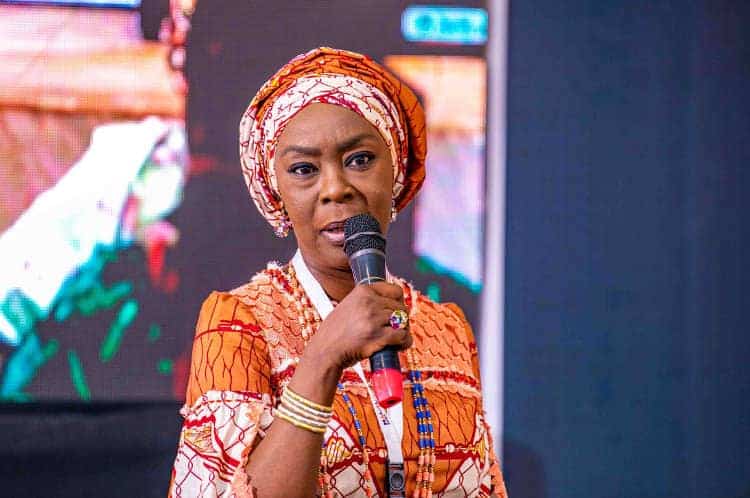Nigeria News
Toyin Saraki Urges Tinubu, Other Incoming Governors To Transform Education Sector

The former first lady of Kwara State, Toyin Saraki, has urged the incoming administration of President-elect, Bola Tinubu, and other incoming governors to uphold every child’s right to free, safe and quality education.
Naija News reports that Toyin made the appeal at the National Moment on Basic and Secondary Education, held on Thursday in Abuja, the nation’s capital.
She noted that the new administration must transform the education sector and also find better ways to provide 12 years of quality education for all children.
According to Toyin Saraki, education is the most powerful investment adding that both the federal and state government should adopt a progressive approach to education as well as the inclusion of children living with disability and those faced with multiple disadvantages.
She said, “Education is the most powerful investment in our future, and this moment is an opportunity for us to encourage our new government to reimagine education for the country and find better ways to provide 12 years of safe, free, quality education for all.
“Through amending legislation to make education free and compulsory up to senior secondary level, thus guaranteeing 12 years of uninterrupted education for Nigerian children, and by adopting a progressive universalisation approach to the implementation of 12 years of education, which prioritizes support those at greatest risk of not learning; the poor, the discriminated against, girls, children with disabilities and those facing multiple disadvantages, Nigeria will be on track to achieving SDG 4”.
In her remarks, the Malala Fund Programme Director for Nigeria, Fatima Askira, noted that insecurity, socio-economic barriers, and the Covid-19 pandemic are additional barriers that hinder girls’ access to education and retention in school up to senior secondary level.
She said: “Malala Fund’s work in Nigeria will continue to respond to these socio-economic and policy realities and build on learnings from our work to date in the country”.




